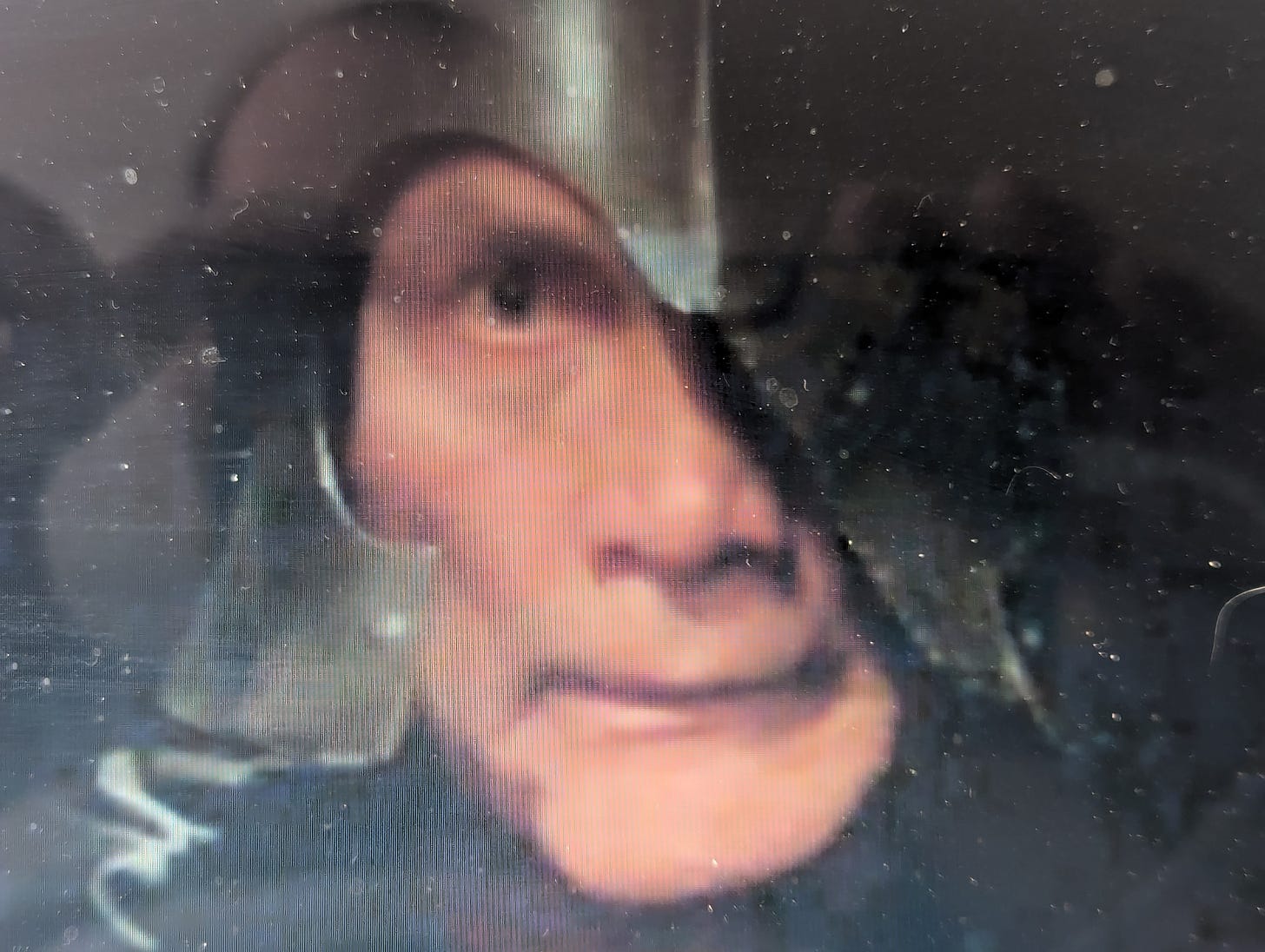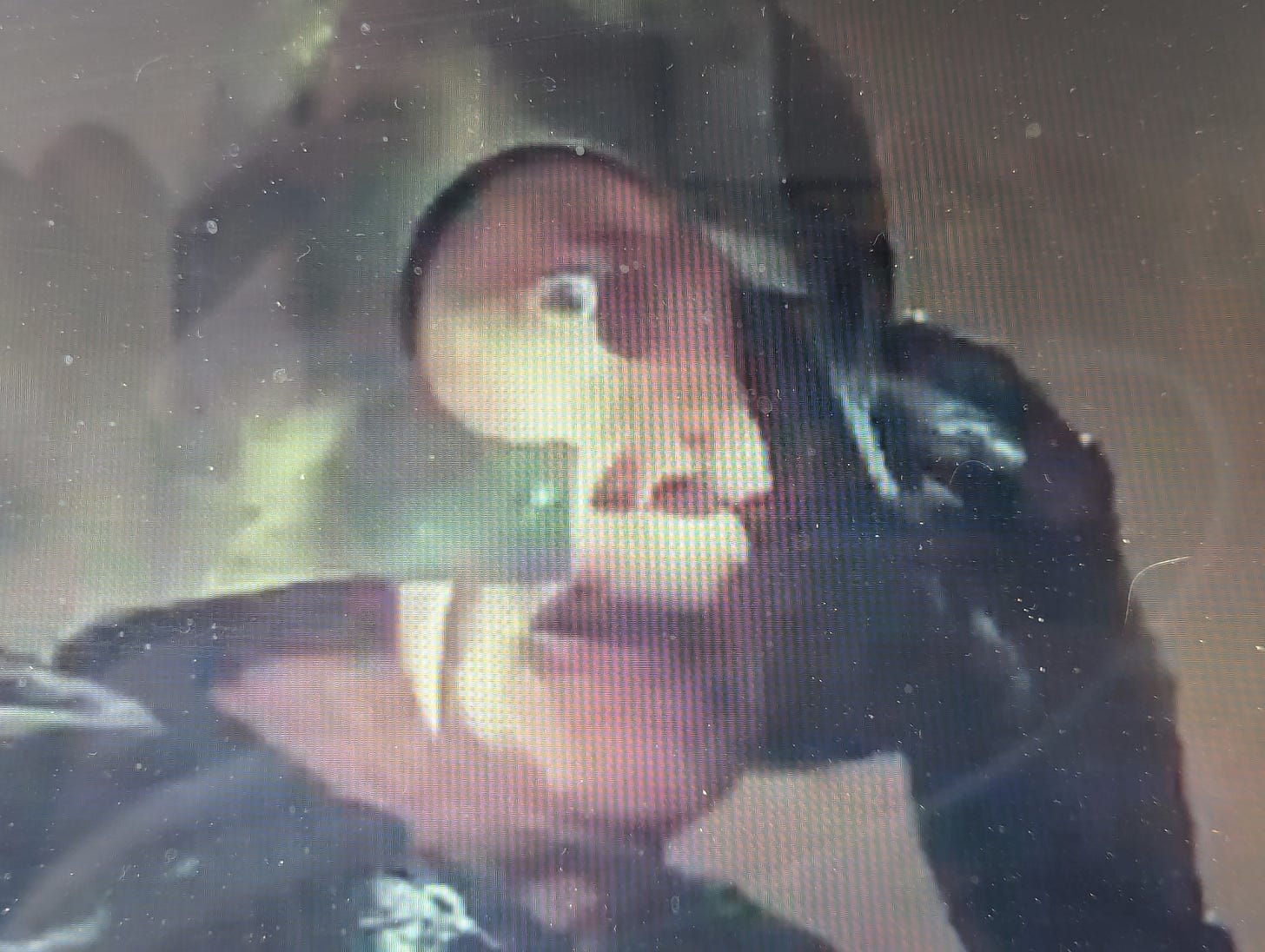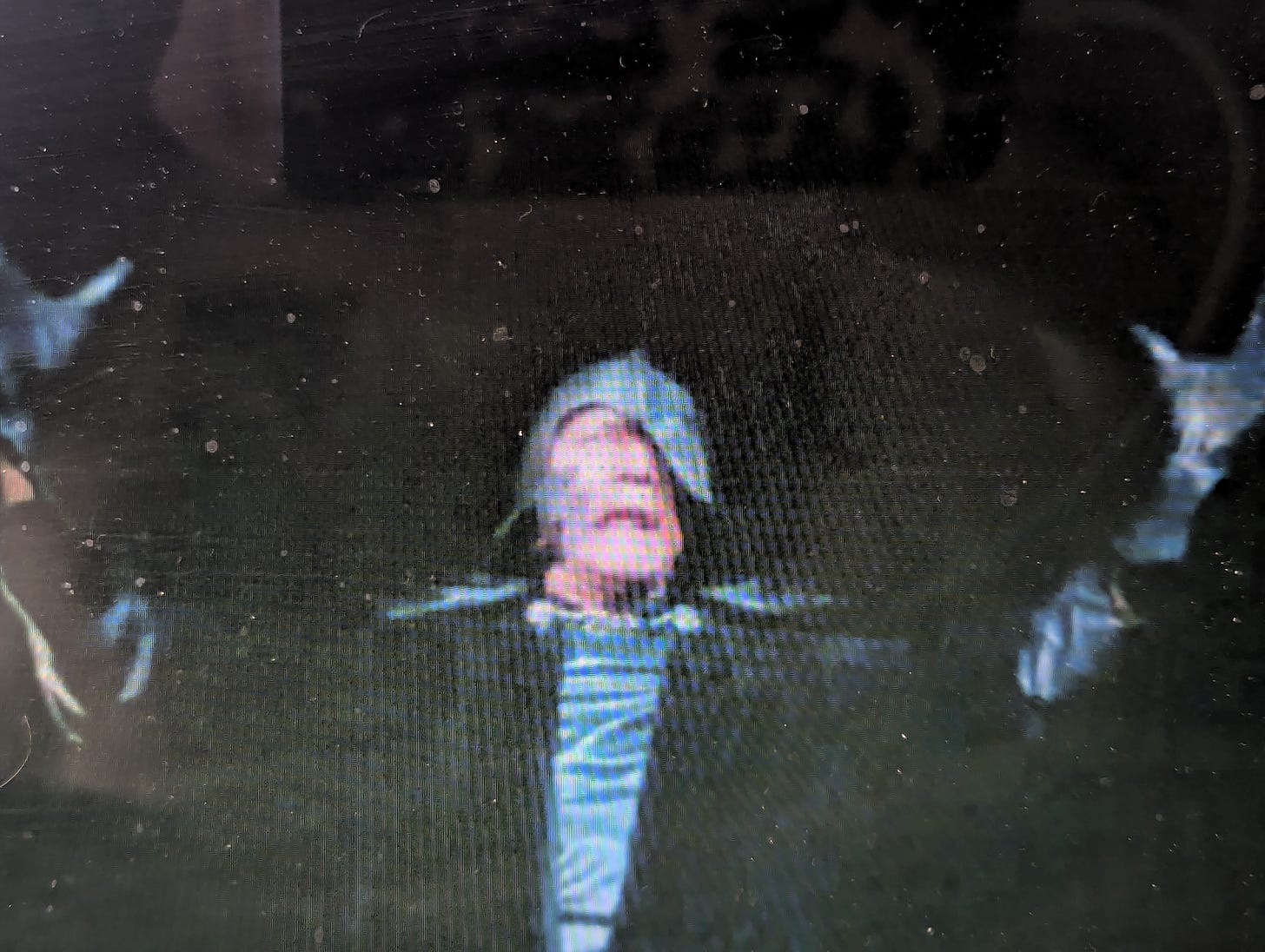Whether performing one-armed press-ups at the Oscars, or gasping his way through cheap fantasy films like a malevolent jackdaw in a hat, Jack Palance didn’t know how to behave. If we were talking about any normal actor this would be a damning verdict, knowing how to behave being pretty much the whole job. But Palance was not a normal actor and he was aiming for way wilder heights. Standing out from his Hollywood contemporaries like a boggle-eyed wolf in a herd of sheep and playing from a rule book that no one else had even seen, let alone read, his best performances feel like emanations from a different zone of cinematic reality.
Partly this was down to his face. His flattened nose betrayed his early career as a boxer, but it was his distinctive expression – half grimace, half grin and apparently the result of some botched plastic surgery after a war time accident* – and shining wide, hungry animal eyes that fully set him apart. Palance always sported the feral expression of someone who’d inherited some arcane knowledge that had separated him from civilization and turned him at odds to the rest of humanity. The perfect villain, in other words.
His performance choices consistently rebel against common sense. He comes at scripted lines like he’s trying to ambush them, gnawing his way through the words like a dog chewing a pool ball. His voice is a dry smoky rasp, but with a mocking quality to it, as if he’s a bored alien trying on the English language for fun. Indeed, throughout Palance’s performance history there’s a sense that he’s indulging in some weird private joke at the universe’s expense. The cobra like leer he displays before his shocking execution of Torrey in Shane (1953), is the amused expression of a man who has seen through the rules and codes of the old West and been exposed to the black truth at the heart of it all: that there is no morality and no one to stop him doing whatever he wants. Palance shows us the terror of his demonic gun slinger – his slow, deliberate mounting of his horse, achieved by reversing the film in the camera, is like something out of David Lynch’s Black Lodge - but also the sadness as well. His Wilson is a man in freefall, and his cold blooded murder of Torrey, dropped into the mud like a mad dog, is as tragic for Palance as it is for the rest of the characters. Something has been broken, the world can’t be the same again, and the pacifist Shane, even in his last resort to violence, will never be able to get it back to working in the same way. The honourable world of the old West is shown up as a flimsy fantasy, fit only to be blown away by any Big Bad Wolf with a six gun.
Palance’s characters consistently display this accidental seer-like quality. If his Frank Hawkes in Jack Sholder’s underrated Alone In The Dark (1982) is a murderous psychopath it’s because the sadness of the world is too much for him to bear. When he stages the invasion of a punk club in the film’s finale it’s a moment of communion between himself and people he identifies with as fellow outcasts. It doesn’t matter that they’re all half his age and covered in safety pins, when a zonked out punkette starts monologuing into his face, Palance looks like someone who finally, after a life of miserable futility, has found a soul mate. Someone to either spend the rest of his life with or strangle to death. You get the impression it would make no difference to either of them.
Of course, some of his performance strategies aren’t up to such lofty examination. His assault of a bread roll with a broad sword in Hawk The Slayer (1980); his unnerving mouse fetishism in Tango And Cash (1989); his fist fight with an extra-terrestrial visitor in Greydon Clark’s Without Warning (1980) – throughout which he inexplicably keeps bellowing “ALIYUUUUUN!” – are not decisions fired in the cold bellows of logical reason, but eruptions of fizzing unreality. Palance, as someone who had cheated death a couple of times before becoming an actor, first by escaping the life working in a Pennsylvania mining town that had killed his father, and secondly after his plane crashed in a training exercise during World War Two, was someone who, one senses, thought that life was pretty absurd and thus adapted his performances accordingly.
Though he often lacked respect for the director’s he worked for (“Not fit to direct traffic”, was a commonly repeated assessment) he was rarely lazy or complacent. Consistently finding odd nooks and crannies to pitch his performances in, and always lifting the end product around his eccentric presence. Despite the film’s threadbare qualities, his Voltan in Terry Marcel’s Hawk The Slayer is one of the most memorable villain performances of the 1980s. Basically a reprise of his Shane character, but pushed all the way into lunacy, Voltan bellows, shrieks and bullies his way through the film like the nastiest kid in the school just got given a sword and some magic powers. He’s a chortlingly despicable and intimidating presence, and my god, is he entertaining.
I don’t imagine that Palance was allowed to get away with all this nonsense simply because he was being indulged by his directors. Jean Luc Goddard, Elia Kazan and Sergio Corbucci were not people to be trifled with and were not known for suffering fools. Rather, I think, each of these consummate artists saw in Palance something wild and fundamentally true, despite its eccentricity. Although accusations of miscasting have been levelled at his performance in Godard’s Contempt (1963), his Jeremy Prokosch is the personification of the ugly American film producer: vulgar, frustrated, obsessed with philistine displays of material wealth, and prone to sudden displays of aggression. His uncomprehending bulk pitches the characters against each other like rattling pinballs, but always in his absurdity there lies the odd melancholy of someone adrift in a world that will not change to accommodate them. Someone who’s alienation from the people around him will never be fixed, no matter how many beautiful red sports cars he drives or people he kills. Whether he’s playing a bandit king in a fantasy kingdom, a black hatted killer or a failing film producer, Palance is a man in limbo, and how he responds to the barely comprehended alienation of his situation lifts and defines the films around him.
*This is often disputed, including by Palance himself, but when you’re dealing with a man like J.P. you print the legend.







Nice! This is a great idea for either a single post or an ongoing column: taking a notable figure in the world of film (or other media) and examining what really sets them apart from others. I'll have to keep it in mind.